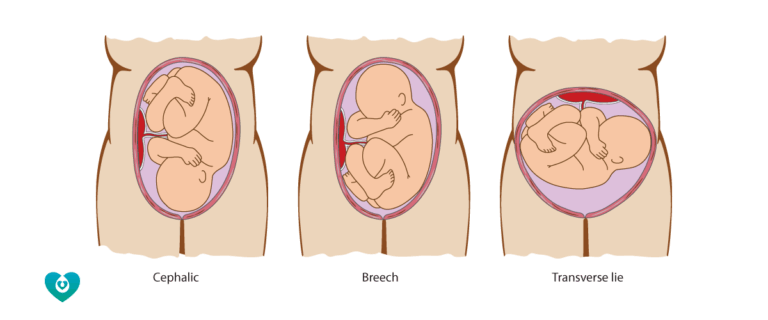Trying to conceive with Endometriosis
If you’re trying to conceive and have endometriosis—or strongly suspect you might—you may already be navigating a complex mix of emotions. Many people feel hopeful and motivated, but also uncertain, anxious, or even a little lost. It’s not uncommon to be doing everything “right” and still feel like your body isn’t cooperating.
Endometriosis is one of the leading causes of infertility, but its impact can vary dramatically from person to person. Some conceive naturally and quickly. Others may try for years without success. Whatever your path looks like, it’s important to know that support exists—both emotionally and physically—and that a personalized approach can make a real difference.
At Acumamas, we’ve worked with many individuals in this exact place. Our goal is to walk with you and offer care that supports the body you have, the symptoms you’re managing, and the future you’re working toward.
How does Endometriosis affect fertility?
Endometriosis is a condition where tissue similar to the uterine lining grows outside the uterus—on the ovaries, fallopian tubes, and surrounding pelvic organs. While it responds to hormonal shifts just like endometrial tissue inside the uterus, this tissue has nowhere to go during menstruation, leading to internal inflammation, scar tissue (adhesions), and sometimes cysts (endometriomas).
This can affect fertility in several important ways:
- Inflammation and oxidative stress can negatively affect egg quality.
- Pelvic adhesions may interfere with the ability of the egg to travel down the fallopian tube or for sperm to meet the egg.
- Hormonal imbalance, especially elevated estrogen levels, may disrupt ovulation or implantation.
- Local immune activation in the pelvic cavity can reduce implantation success even when fertilization occurs.
From a TCM perspective, endometriosis is often seen as a manifestation of blood stasis, sometimes complicated by cold in the uterus or Qi stagnation—all of which can impede the free flow of energy, circulation, and nourishment to the reproductive organs.
A 2022 review published in Reproductive Biology and Endocrinology confirmed that chronic inflammation and altered immune responses in endometriosis patients contribute to reduced fertility potential—even when cycles appear regular.
You don’t have to wait for a diagnosis to start supporting fertility
One of the most difficult aspects of endometriosis is how long it can take to receive a formal diagnosis. In Canada, many patients wait 5-8 years, often enduring cycles of pain, failed treatments, or being dismissed altogether. While surgical confirmation via laparoscopy remains the gold standard, the reality is that many people have to manage their symptoms without one.
But a delayed diagnosis doesn’t mean you can’t begin caring for your body.
At Acumamas, we believe you don’t need to wait for a label to start supporting your health. If you’re experiencing painful periods, pelvic discomfort, fatigue, or fertility challenges, there are gentle, effective ways to begin restoring balance and improving function.
This in-between space—where you’re living with real symptoms but don’t yet have a diagnosis—is one we understand well. And it’s where integrative care can be especially powerful.
How integrative care can support fertility with Endometriosis
We offer a collaborative approach that blends Traditional Chinese Medicine, naturopathic support, and emotional care to help you feel resourced, regulated, and better prepared—whether you’re trying naturally or moving toward assisted reproductive technology.
1. Acupuncture to regulate cycles and improve pelvic blood flow
From a TCM lens, acupuncture helps move stagnant blood and restore balance to organ systems—particularly the Liver and Spleen—which are closely linked to hormonal and menstrual health. Acupuncture has long been used to treat menstrual and fertility concerns. When it comes to endometriosis-related fertility issues, acupuncture & TCM may:
- Regulate the HPO (hypothalamic-pituitary-ovarian) axis to support more predictable ovulation
- Reduce inflammatory markers in the pelvic cavity
- Improve blood flow to the uterus and ovaries, optimizing the endometrial lining and egg nourishment
- Decrease stress and improve resilience by activating the parasympathetic nervous system
2. Naturopathic medicine for hormonal, immune, and egg health
Our naturopathic doctors begin with a full intake and, if needed, hormone and nutrient testing. Treatment plans often include:
- Targeted nutrition to reduce inflammation (e.g., omega-3s, low-glycemic whole foods, gut health support)
- Herbal medicine to modulate estrogen and progesterone (e.g., chaste tree, curcumin, green tea extract)
- Mitochondrial support for egg quality (e.g., CoQ10, NAC, and antioxidants)
- Detoxification support to help the liver and digestive system process excess estrogen and inflammatory by-products
For people with endometriosis, the goal isn’t to chase perfect hormone levels—but to help the body work more efficiently and reduce the burden of inflammation over time.
3. Counselling for the emotional landscape of trying to conceive with Endo
Trying to conceive while managing a chronic condition can be emotionally exhausting. It often means holding hope and grief at the same time. Fertility counselling may support you by:
- Creating a safe space to explore frustration, fear, or burnout
- Helping you navigate the emotional rollercoaster of cycles, waiting periods, and fertility treatments
- Offering strategies to stay grounded in your body and your values throughout the journey
We believe emotional wellbeing is part of reproductive health—not something separate from it.
You are not alone
Trying to get pregnant while managing endometriosis can feel like you’re carrying a secret burden—especially when you look “fine” on the outside. But you’re not imagining this. You’re not overreacting. And you’re definitely not alone.
There’s no one right timeline or one right path. Whether you’re exploring natural conception, preparing for IVF, or simply trying to understand your own cycles more deeply, you deserve care that acknowledges your lived experience and supports you with compassion and clarity.
Ready to take the next step?
If you’re feeling stuck, curious, or ready to begin somewhere—anywhere—we’re here to support you. Our team offers thoughtful, integrative care that helps you feel more in tune with your body and more hopeful about your fertility journey.






